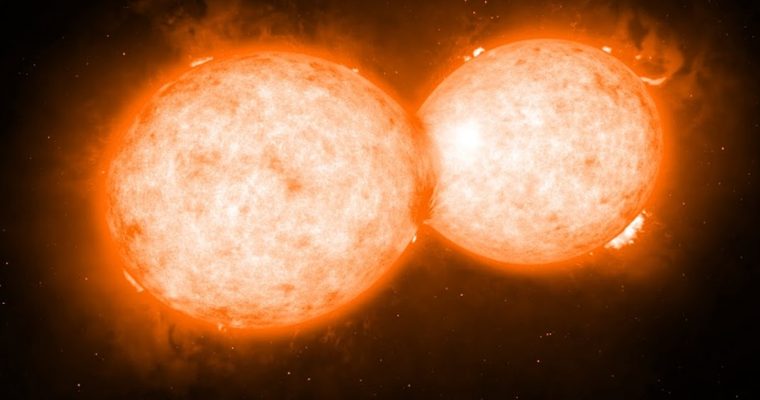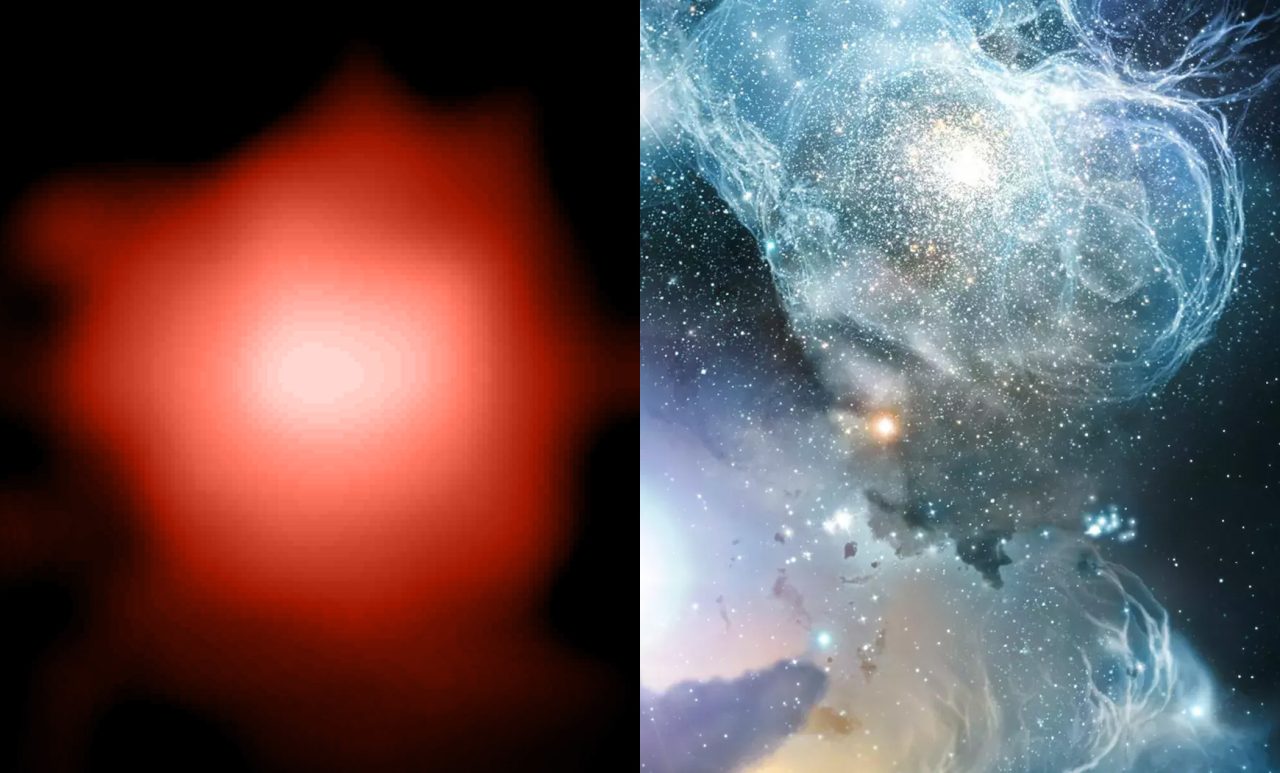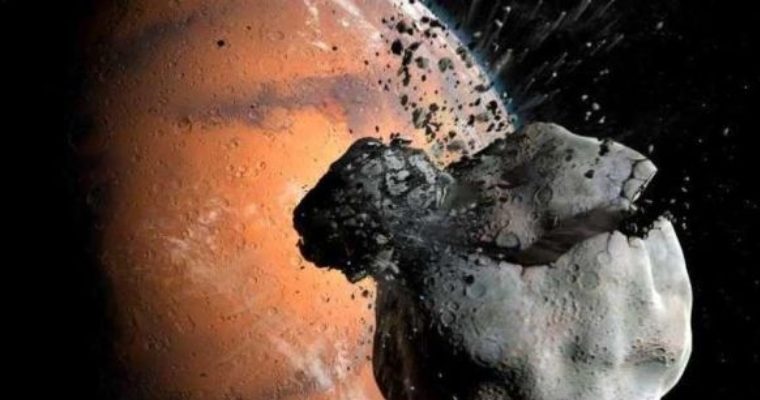Will human flesh explode or will blood instantly evaporate like scenes depicted in sci-fi movies?
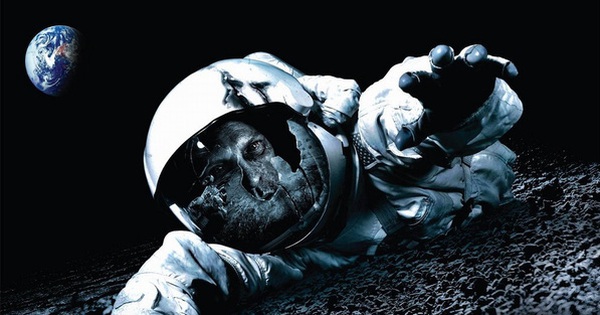
Astronauts on the International Space Station (ISS) were not inside the capsule the entire time. Sometimes they have to go to outer space to perform repair or experimental missions. In such a case, wearing a space suit allows them to survive and operate safely outside.
But, what happens to the human body if thrown into space without wearing a space suit?
This scene is depicted in many Hollywood sci-fi movies. Like the flesh and blood in the body will explode when the person is in direct contact with space, or the blood in the body will immediately boil and evaporate until the character dies. But in reality things won’t turn out like that.
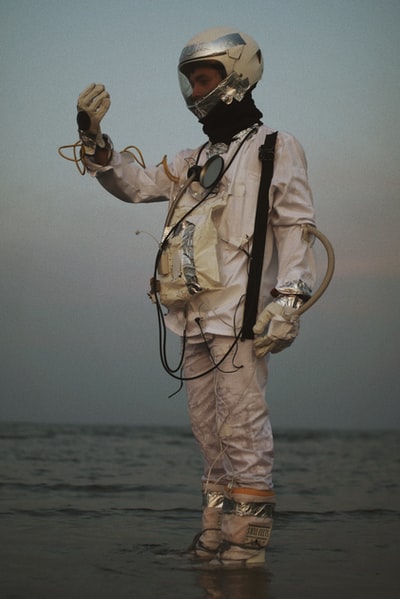
Space suit.
Although we are barely aware of this in everyday life, the human body while living on Earth is constantly under pressure from the atmosphere. But the pressure inside our body will push back to maintain balance. However, since outer space is a vacuum, it would not have the same atmospheric pressure as on Earth. Therefore, if suddenly jumping into space without the protection of the protective suit, the human body will fall into a sudden “decompression” state.
The theory of the human body exploding in space in the movies is related to this sudden “decompression”. However, according to reports in ZME Science , human skin is flexible and strong. So it can expand under pressure without exploding vital tissues and organs.
However, the effects of sudden “decompression” are not small, and it causes pain when water in the body evaporates rapidly in the tissues, pressure from the heart, or pressure on the diaphragm due to the expansion of air in the intestines… Not to mention, the sudden release of air from the lungs can cause damage to tissues in the lungs and airways.
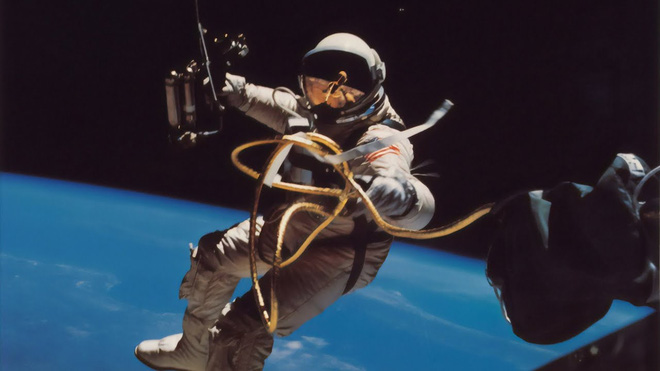
Humans cannot survive in space without protective gear.
Some believe that if suddenly thrown into space, you should try to hold your breath to take advantage of this short time to troubleshoot and find a way back inside the spacecraft compartment. However, this can be said to be the “worst act” a person can do. Because when holding your breath in space, air bubbles will enter the bloodstream and move quickly to the brain, causing a stroke or lung burst due to pressure changes.
But even without holding their breath, the person will soon run out of oxygen. If they’re lucky, they’ll probably be conscious within about… 15 seconds, after stepping out into space. Soon after, they will lose consciousness and in about 2 minutes the organs of the whole body are starved of oxygen and die.
In the past, there have been several cases of accidents that occurred when the human body was in a state of exposure to a vacuum or was suddenly “decompressed”. In 1965, an accident occurred at Johnson Space Center when a technician entered a vacuum chamber that had been accidentally turned on. He lost consciousness after about 12 to 15 seconds. After 27 seconds, the inside of the vacuum chamber was pressurized again, bringing the technician back to life. Although this guy lost his taste buds about 4 days after the accident, his body recovered safely. In one accident in 1982, a technician was exposed to a low-pressure environment equivalent to only 3.6% of atmospheric pressure for 1 minute. The incident caused his skin to turn blue and bleed in his lungs. This man also later recovered safely from the accident.
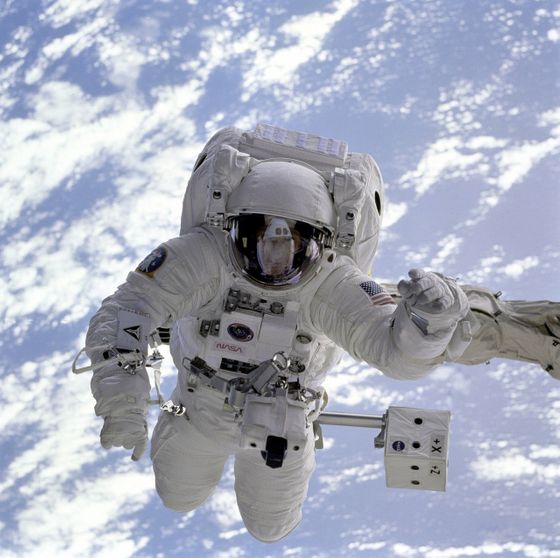
Don’t be ejected into space without a protective suit.
Another problem that is often mentioned when people go to space is temperature. In space, the temperature outside in sunlight is approximately 121 degrees Celsius and the temperature in the sun is about -157 degrees Celsius. This sounds terrible. However, since there is no air in the universe, heat is not transferred to the human body through air, nor is it transferred by convection. Radiation is the only way heat can travel through space in the universe. But this way of heat transfer takes time, so humans will die from lack of oxygen before dying from heat.



